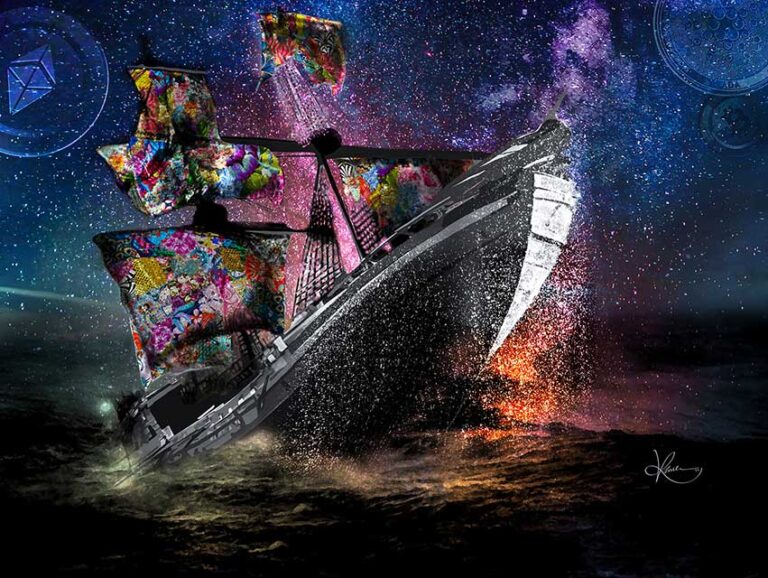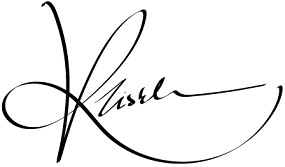As a creator of NFTs, I get a lot of questions from curious people who are looking to create their own NFTs. With NFTs taking the physical and the digital world by storm, I thought it would be a perfect time to write a blog which answers 10 frequently asked questions that I get. Hopefully, my answers will help guide a beginner in their quest to better understand NFTs.
So, here are the 10 FAQs:
- What is a Non-Fungible Token (NFT)?
NFT stands for a Non Fungible Token and “Non Fungible” basically means that an item is unique and cannot be replaced with something else. For example, a $10 bill can be replaced by two $5 bills but it will have the same value. However, a cinema ticket cannot be replaced with a theatre ticket.
So, NFTs can represent a unique digital asset which can be an artwork, audio, video collectible. As we know that digital files are infinitely replicable, as they are online and anyone can copy or save them. With the help of blockchain technologies, NFTs are designed to offer you something that cannot be copied which gives you complete ownership of the work. It can be seen as a digital certificate that verifies the authenticity of the digital content.
Additionally, to start creating or trading NFTs, one has to have a greater understanding of cryptocurrencies, specifically Ethereum, as the Ethereum blockchain is primarily used with NFTs. Therefore, one would need a digital wallet to acquire Ethereum or other cryptocurrencies to get started in tokenizing their digital content.
- What is the main distinction between NFT art and “traditional” art?
NFTs embody all the numerous advantages of creating digital art. You are able to display your digital work anywhere; it could be on any screen or even on a transparent acrylic sheet. When it comes to traditional art, you are bound to a canvas or other artisanal materials which can be quite restricting. With NFTs, you are able to create digital art that can have elements that are animated and dynamic which is much more liberating as a form of artistic expression. Additionally, with digital art the possibilities seem to be endless as you can introduce animation to your work or even try your hand with augmented reality.
- What does it mean when one says, “I am minting my art as an NFT?” and how can creators benefit from all this?
When you “mint”, you have recorded your artwork on the blockchain and now there is an immutable proof of ownership of your artwork online and by doing so, it has now become a non-fungible token. Creators can really benefit from this as they have complete ownership of their work and the NFT allows for artists to receive royalties every time their artwork is traded or sold which is incredible as this allows them to keep reaping the financial benefits of their work perpetually. With the authenticity of digital content always being an issue, NFTs directly address this and help bring more trust and confidence in the digital art market.
- As a beginner, how does one start selling their art as an NFT?
Before you even start doing anything with NFTs, read and watch as much content as you can about NFTs. You do not want to get into NFTs on a whim. This will only result in a loss, so understand how is an NFT created/minted, what are the various NFT marketplaces and their pros and cons and all the additional costs associated with creating your own NFTs. I would suggest starting with OpenSea which is one of the most popular NFT marketplace that has a very user-friendly interface. It is perfect place to start understanding how NFTs are traded and how the market works.
- How can one build their brand as an NFT artist?
Since NFTs/digital art can be wide ranging and dynamic, it is important to narrow down what kind of NFTs you are creating and sticking to it. This kind of consistency will help in building up your brand and image as an NFT creator, who is just starting out. For example, if you are a contemporary artist like me, come up with a unique style that you can become recognized for and that will help in building up the value of your NFTs.
- Do you have to purchase any Ethereum first to start?
As Ethereum is the primary cryptocurrency used for acquiring and trading NFTs, you will need to convert a certain amount to deal with NFTs. Research on how you can buy Ethereum, what crypto trading platform you would like to use and select your go-to information resources for cryptocurrencies. This can be Youtube crypto experts or info-media platforms.
After your research, set up your digital wallet which will be needed if you would like to do anything related to NFTs – think of a digital wallet as an actual wallet which helps in keeping track of your Ethereum.
- Can you resell the same NFT artwork on other platforms?
You cannot do that as it is not only unethical and unprofessional, it also brings up the question of your authenticity as an artist. Since the blockchain keeps a secure record of ownership and transactions of all NFTs, doing something like this can immediately be found out and jeopardize whatever you have built as an NFT artist.
- Does limited edition mean anything in the NFT realm?
Definitely! You can create multiple, limited edition artworks whose ownership can be sold, and each limited edition can be minted as an NFT.
- What is the bidding process like for NFT related auctions?
The bidding process on Foundation (my chosen NFT Marketplace) is quite straight forward. You start by setting a reserve price which is the minimum bid that is needed to get an auction on your NFT started. Once the reserve price is matched by a bid, a 24-hour auction where the highest bidder gets to acquire the NFT.
- What are some of the factors that can contribute to one’s success as an NFT creator?
Firstly, if you have the resources, try to put together a team of people that you can rely on for advice and support when it comes to your NFT business. Secondly, do not be afraid to experiment and learn from the whole process of creating, trading and selling NFTs. Finally, consistency is key. Be consistent in how often you create and mint NFTs, so you frequently have your name out there. Keep consistent with your habits of staying updated with the recent market developments and what is happening in the NFT community.
There you go, I hope that answers most of the questions that beginners have regarding NFTs. If you would like to know some more about NFTs, please check out my previous blogs on the topic or get in touch with me via my socials. This is just the first step on your way to becoming an NFT expert, so keep researching and have fun minting your very first NFT.
Shop my artwork collection here.
Check my digital art collection here.


